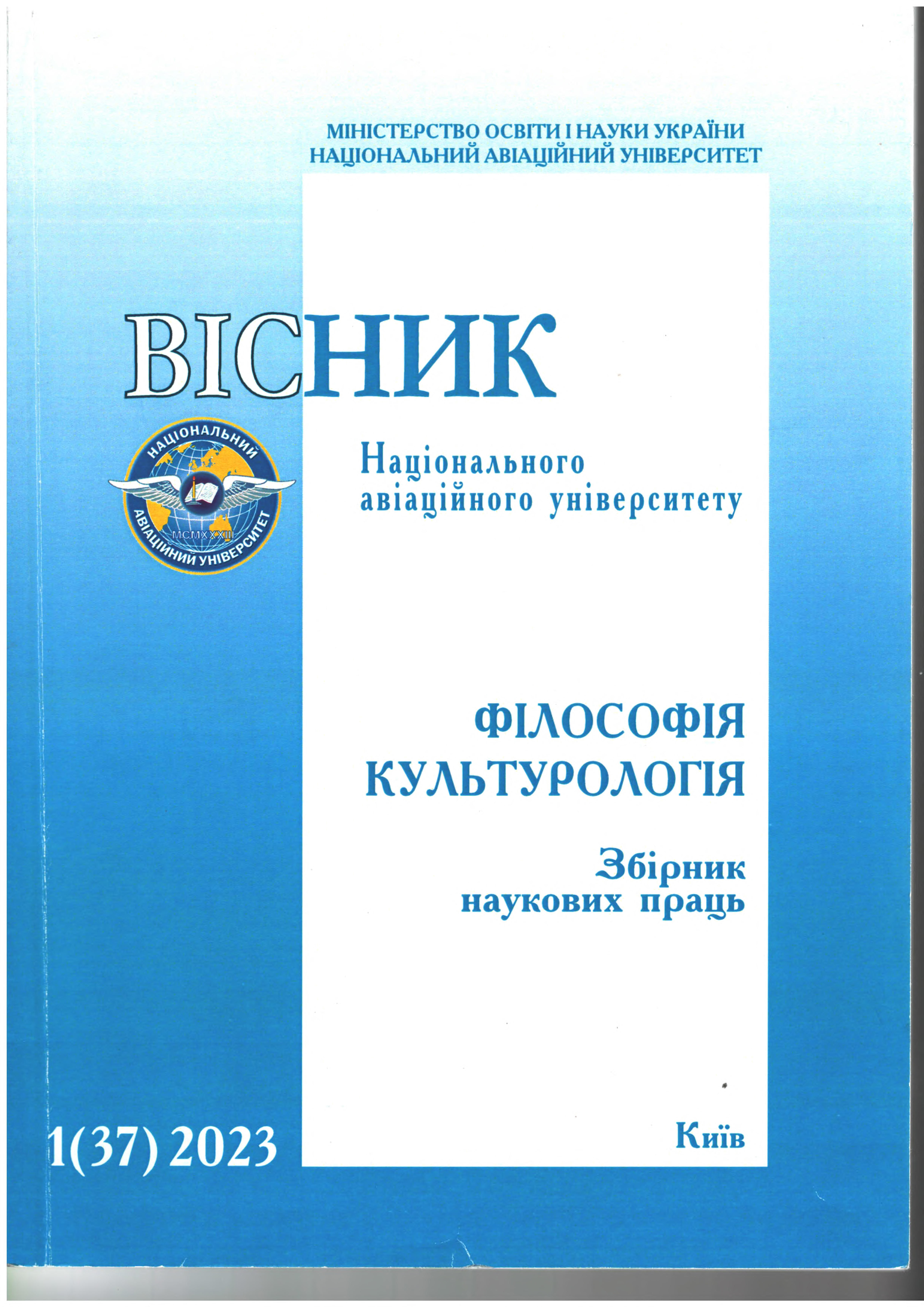ON UNDERSTANDING OF PHILOSOPHY: HISTORICAL AND PHILOSOPHICAL DISCUSSIONS OF THE XX – XXI CENTURIES
DOI:
https://doi.org/10.18372/2412-2157.37.17581Keywords:
філософія, дискусія, тип філософського мислення, утопічне мислення, «інший» модерн, соціальний проєктAbstract
Introduction. The article discusses the features of «classical» and modern philosophy, types of philosophical and social thinking as a subject of
modern philosophical discourse. The aim of the study is to analyze the culture of «classical» and modern philosophical thinking in the context of
their positive and negative aspects, as well as the impact on the social and cultural development of modern humanity. Research tasks are to
analyze the features and basic principles of «classical» and «modern» philosophical thinking as types of philosophizing; to show the
inexpediency of a one-sided approach to the classical tradition as an «utopian project». The core of the research methodology is based on
historical and philosophical, scientific and systemic, comparative approaches. The analysis also applied the methodology of the hermeneutics of
consciousness. Research results. Utopian thinking as a variant of «social project» passes through all cultural and historical eras, therefore
there is no reason to associate it exclusively with the «philosophy of modern». A critical analysis of the philosophy of the XIX century in modern
discourse allows us to assert that the category of «universal», with which this tradition works, is a «classical» way of philosophical categorical
and logical thinking about the foundations of a person’s social and cultural existence and allows one to reason problematic, but not utopian.
Discussion. The works of domestic and foreign researchers, which considered the problem of understanding philosophy as a certain culture of
thinking were of scientific interest. In particular, there were of A. Badiou, V. Zagorodniuk, P. Kozlowski, S. Kutsepal, V. Hösle, A. Vogt, M.
Heidegger, E. Shatsky and others. Conclusions. The history of philosophizing in the XX and the first decades of the XXI century shows a
hidden or explicit state of debatability between two types of philosophical thinking – «classical» and «modern» (post-classical). Moreover, the
modern type (in its most diverse directions) is aimed at deconstructing the «classical» version of thinking. Rejection primarily causes utopianism
as a «general project» for the transformation of reality. However, utopianism, irrational social «projecting» does not belong to «classical»
philosophical thinking and are not its essential feature. The phenomenon of utopia as a type of social thinking is characterized by cultural
transhistoricity and a paradoxical combination of the principles of anti-historicism and progressivism.
References
Hegel, G. W. F. Wer denkt abstrakt? In: G. W. F.Hegel, Jenaer
Schriften 1801–1807. Werke 2 (SS. 575-581). Frankfurt a. Main:
Suhrkamp, 1986.
Гьосле В. Трансцендентальна прагматика як фіхтеанство
інтерсуб’єктивності. Єрмоленко А. М. Комунікативна практична
філософія. К. : Лібра, 1999. С. 455-478.
Загороднюк В. П. Антропологічний поворот у лінгвістиці та
лінгвістичний поворот у філософії. Totallogy-XXI. Постнекласичні
дослідження (сьомий випуск). К. : ЦГО НАН України. 2002. С. 254-
Йонас Г. Принцип відповідальності. У пошуках етики для
технологічної цивілізації. К.: Лібра, 2001. 400 с.
Кемпбелл Дж. Міфи, в яких нам жити. К. : «Софія», 2002.
с.
Куцепал С. В. Французька філософія другої половини ХХ
століття: дискурс із префіксом «пост-». К. : Вид. ПАРАПАН, 2004.
с.
Суходуб Т. Д. Діалогічне мислення: становлення та розвиток.
Вісник Національного авіаційного університету. Серія:
Філософія. Культурологія: Збірник наукових праць. Вип. 2 (34).
К. : НАУ, 2021. С. 60-66.
Суходуб Т. Д. Міфологія: «методологічне» значення.
Totallogy-XXI. Постнекласичні дослідження. № 36. К. : ЦГО НАН
України, 2019. С. 76-97.

